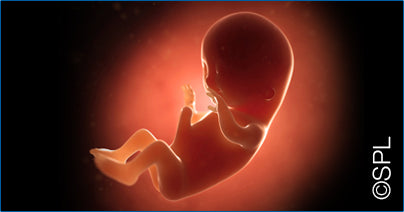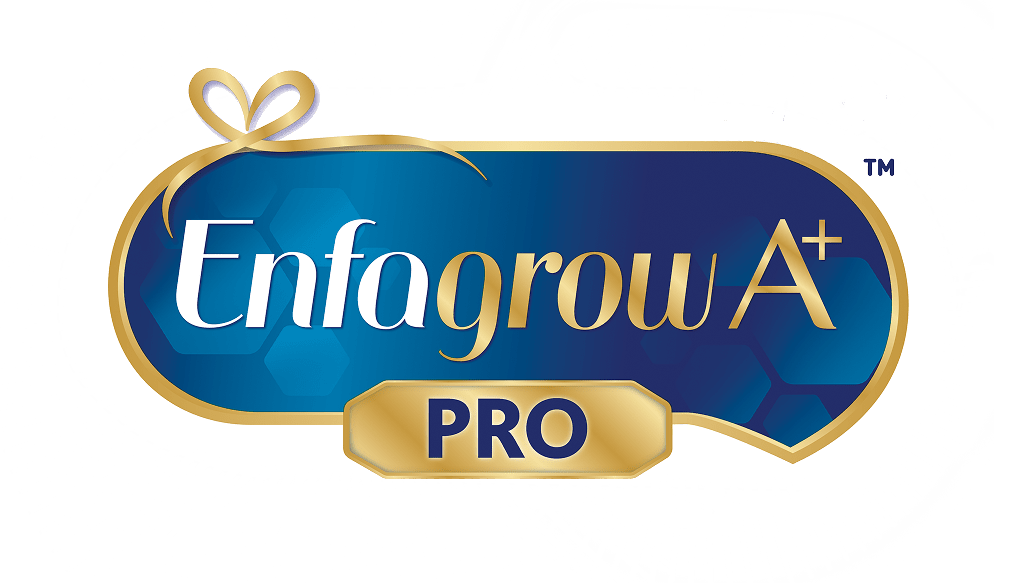
Pregnancy week 36 marks the final month of your pregnancy. How does your developing baby prepare his brain and body for the day of his delivery?
During pregnancy week 36 until you give birth at around week 40, your developing baby is busy preparing for life outside the womb. They will continue to develop brain functions and undergo physical changes at this point, but they will still be relying on you for all their nutritional needs.
Common Symptoms During Pregnancy Week 36

By pregnancy week 36, your belly will have grown to be quite large. It’s not unusual to have difficulty getting around and to always be tired.
In this last stretch of your pregnancy, you will feel the same symptoms you have been experiencing this trimester, namely:
- fatigue
- frequent urination
- heartburn
- leaky breasts
- Braxton-Hicks contractions1
You should also be on the lookout for contractions, as this could be a sign of early labor. Contractions grow in intensity, peak and then subside, returning and becoming more frequent as delivery approaches. Track any contractions you feel, to be sure.
At 37 weeks, your baby will be considered early term, and at 40 weeks, they will be full term. However, every pregnancy is different, and the day of your delivery could come at any time. So it’s a good idea to get that labour and delivery checklist ready at pregnancy week 36. You should also have a birth plan in place with your OB-gyn and pediatrician. Please contact your doctor or obstetrician if you have any doubt or concern at any point of time.
Your Baby’s Brain Continues to Develop at Pregnancy Week 36
Your developing baby is working hard at developing their brain. During pregnancy week 36 until birth, your baby’s brain continues to make the connections that will support their cognitive development in the future2.
This means that in this final trimester, your developing baby will have an increased need for omega-3 and omega-6 fats, such as DHA and ARA, which are essential for healthy eyes and brain development3 4.
You can help your developing baby reach their developmental milestones and give them valuable nutrients from a well-balanced diet. Nutrients such as DHA can be found in fatty fish such as salmon and sardines. Choline is another important nutrient that supports brain development, including memory skills5 – so stock up on milk, eggs and beans6.
A balanced diet should contain a variety of foods from different food groups. Make sure you are including lean meat, grains, legumes and soy products in your daily meals. A nutritious diet also helps your body recover and repair itself after you give birth7, ensuring that you are in the best shape to enjoy those first moments with your baby.
What Else Is Your Baby Doing in Pregnancy Week 36?
Besides brain development, many other changes are happening to your baby’s body. For example, you may feel that your developing baby has moved down into your pelvis – that’s your developing baby getting ready to see the world as they shift into the birth position.
When your baby moves downwards into the fetal position with their head pointed towards your cervix and their arms and legs pulled against their chest, that’s their preparation for the big event! At this stage, the bones in your baby’s head are soft and flexible. This makes it easier for them to move through your birth canal, if you have a natural birth.
After all, your developing baby is not so little anymore! At pregnancy week 36, the final stage of your pregnancy, your developing baby should now weigh around 7 pounds (3.1 kilograms), and they’re making the most of these last few weeks in the womb to grow as much as they can.
Your Developing Baby’s Future Milestones
As the third trimester comes to an end, you will probably be both excited and anxious, especially if you don’t have a set delivery date. But don’t worry! Your developing baby's birth date might be a surprise, but make sure that your arrangements have been made in advance.
There is much in the future to prepare for. You have done so well, and just last month, you were already passing antibodies in your blood to your developing baby to help protect them from illnesses. Revisit how you made sure they will be protected and track how far both of you have come since month 8 of your pregnancy. You should be proud!
Want to learn more about how your developing baby will develop over your pregnancy – plus, nutritional advice for you and your developing baby, online support and more? Sign up for Enfamama A+ Club to receive new articles, useful tips and rewards that can help you and your developing baby!
Expert Resource:
Dr. Raymond Choy Wai Mun
(MCR 18097A)
MBChB (UK), Aviation Medicine (Singapore)
REFERENCES:
- 36 Weeks Pregnant: Symptoms, Tips, and More, https://www.healthline.com/health/pregnancy/36-weeks-pregnant#your-baby, Accessed 22 November 2020
- Baby Development, http://www.babycenter.com/baby-brain-development, Accessed October 2015
- Innis SM. Dietary (n-3) fatty acids and brain development. J Nutr 2007;137:855-859.
- Uauy, Ricardo, and Alan D. Dangour. Nutrition in brain development and aging: role of essential fatty acids. Nutrition reviews 2006; 64 (suppl 2): S24-S33.
- Zeisel SH. Nutrition importance of choline for brain development. J Am Coll Nutr. 2004 Dec;23 (6 Suppl):621S-626S.
- US Department of Agriculture. Dietary Intakes of Choline, http://www.ars.usda.gov/SP2UserFiles/Place/80400530/pdf/DBrief/9_choline.... , Accessed October 2015
- MedlinePlus, US National Institutes of Health. Eating right during pregnancy, http://www.nlm.nih.gov/medlineplus/ency/patientinstructions/000584.htm, Accessed October 2015



